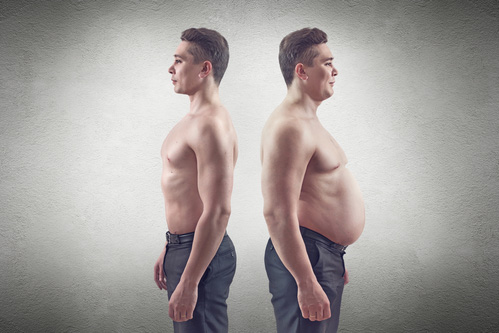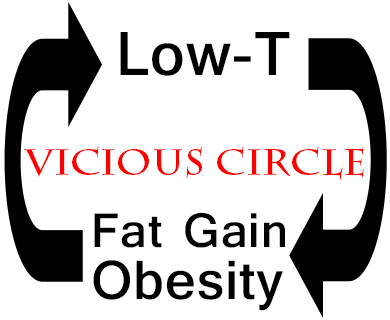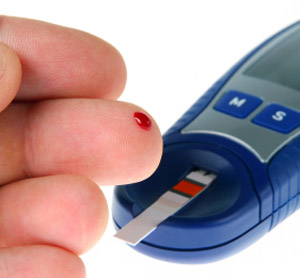8 Diet Foods that Can Make You Gain Weight
- Published in Weight Loss

As more and more Americans are being affected by obesity, it is more important than ever to be properly educated on foods we should be consuming and foods we should probably avoid if weight has been an ongoing issue. A lot of “diet foods” that are usually distinctly labeled with low-fat, low-calorie, or fat-free have been marketed to people wanting to lose the extra pounds. Unfortunately, some of these labels are actually misleading and can cause weight gain instead. Keep reading to learn more about these deceptive foods.
Effects of long-term testosterone treatment on weight loss and waist size in obese men - is TRT the next obesity treatment?
- Published in Testosterone Replacement Therapy

Red Meat - Good or Bad for Fat Loss?
- Published in Diet, Nutrition & Supplements
Is Testosterone Replacement Therapy a Lifelong Treatment?
- Published in Testosterone Replacement Therapy

Testosterone and Fat Loss - the Evidence
- Published in Testosterone Replacement Therapy

Efficacy and safety of injectable testosterone undecanoate (Aveed or Nebido) for the treatment of hypogonadism
- Published in Testosterone Replacement Therapy

Muscles – not just for bodybuilders!
- Published in Body Composition
For most people, the mere word “muscles” brings to mind huge muscular bodybuilders... The importance of muscle mass, strength, and power for physical performance in exercise and sports is obvious. However, muscles aren’t just for show or athletics. Here I will explain why….
Prediabetes is associated with an increased risk of testosterone deficiency, independent of obesity and metabolic syndrome.
- Published in Testosterone - Men

Prediabetes is a condition in which blood glucose level is higher than normal but does not reach the level for diabetes diagnosis.[1, 2] Studies have shown that people with prediabetes tend to develop type 2 diabetes within 10 years, and are at increased risk for cardiovascular disease.[1]
Among US adults over 18 years, the prevalence of prediabetes has increased from 29.2% in 1999 to 36.2% in 2010.[3] Considering the entire US population in 2010 (approx. 309 million, data from US Cencus), this corresponds to 112 million US adults, or over one third of the US population.
Data from non-diabetic men have revealed an inverse association between insulin resistance and testosterone levels; i.e. a higher degree of insulin resistance is associated with lower testosterone levels.[4-6] This raises the question whether prediabetes, which is a state of increased insulin resistance, is also associated with low testosterone. However, few studies have investigated testosterone levels in men with prediabetes, and the risk of testosterone deficiency in men with prediabetes has not been reported.
Because the prevalence of prediabetes is affecting such a large number of Americans, and is on the rise, it is important to investigate how this condition might affect testosterone levels. Knowing that can help
detect men who are likely to have testosterone deficiency and might be at risk for health derangements caused by low-T.



